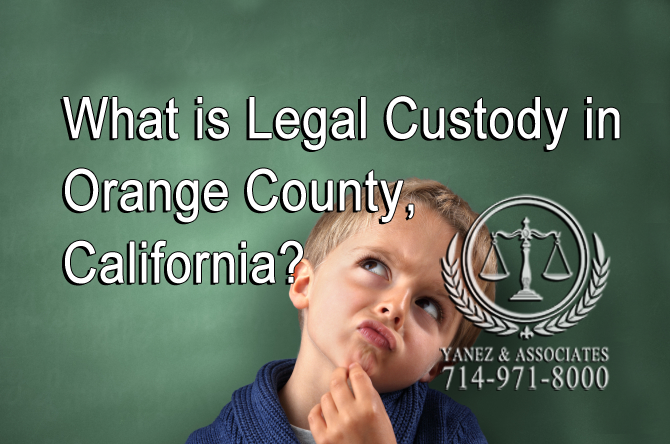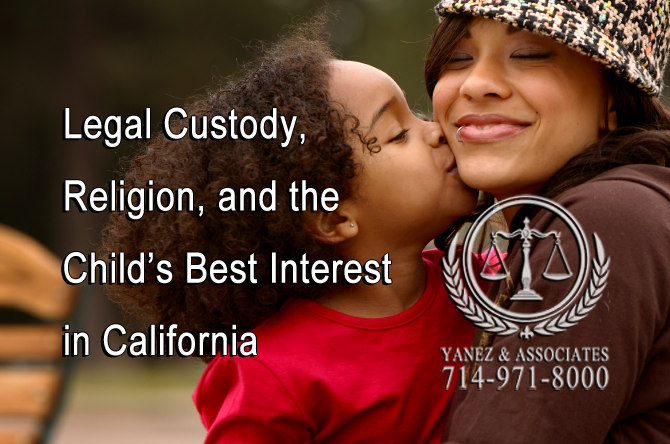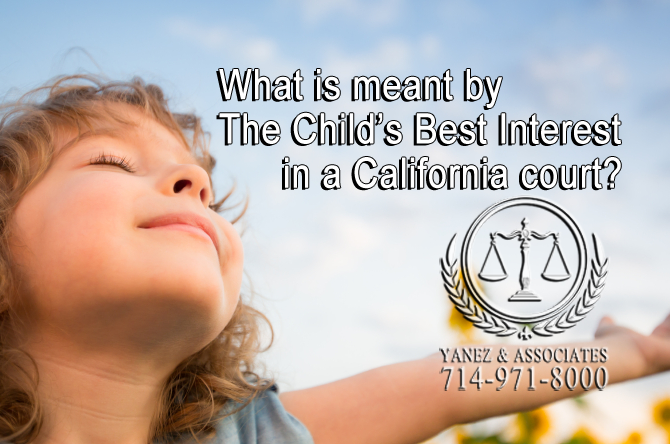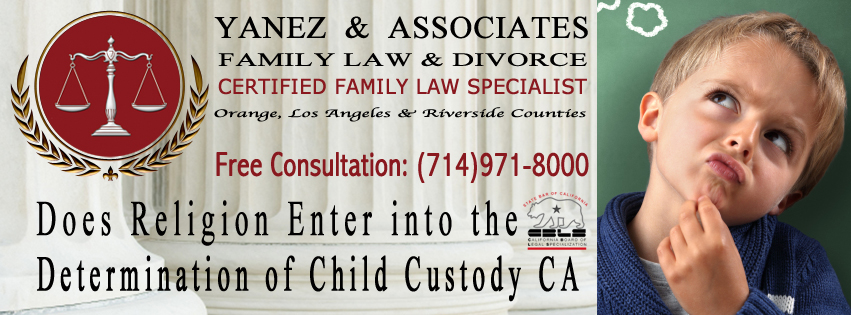Can Religion Enter into the Determination of Child Custody in California?
Does Religion Enter into the Determination of Child Custody in Orange County, California? In the United States, a parent’s religion and child custody should have no effect on the outcome of a custody case. A child’s parents have the right to decide what a child’s religion will be while that child is under 18.
But, what happens when the parents divorce and do not agree on a child’s religion? Child custody is awarded based on what is in the best interest of the child. If a parent’s religion is found not to be in the best interest of the child, it may affect a parent’s chances of getting custody, unless it is possible for the parent to distance the child from the religion.
The main issue that arises when it comes to religion and custody is a delicate balance between the parent’s rights, and the child’s best interests. When one parent complains about the religion of the other parent, it is up to the courts to decide what is in the best interest of the child.
What is Legal Custody in California?

When a child custody order is created, it is divided into two sections: legal custody and physical custody.
Physical custody refers to where a child will live, and it can be awarded either solely to one parent, or jointly to both parents. If one parent is awarded sole custody, the other parent is usually awarded visitation rights so that the child can spend time with both parents. (Usually it is in the child’s best interests to spend time with both parents.)
Legal custody, on the other hand, refers to the right to make important decisions for a child. This includes decisions about a child’s religion, in addition to decisions about other important things like physical health care, mental health care, education, extracurricular activities, travel, and more.
Legal custody can be awarded either jointly to both parents, or solely to one parent, just as physical custody can. Just because physical custody is awarded solely or jointly does not mean that joint custody will also be awarded the same way. The opposite is also true, just because legal custody is awarded either jointly or solely does not mean that physical custody will also be awarded the same way.
Legal Custody, Religion, and the Child’s Best Interest in California

If one parent is awarded sole legal custody of a child, that parent has the right to determine the child’s religion.
However, if a parent’s religion or religious practices have been determined to meet one of the following three standards, the court may require the parent to raise the children under a different religion, or no religion at all.
• Actual or Substantial Harm Standard - If the parent’s religious practices actually harm the child, the religion is not in the best interest of the child.
• Risk of Harm Standard - If there is a risk of the parent’s religion or religious practices harming the child, this standard determines that the religion is not in the best interest of the child.
• The no Harm Standard - In this case, the court has determined that there is no harm, or risk of harm to the child because of the parent’s religion. If a parent that has been granted sole legal custody determines that a child shall be raised under a certain religion and this standard has been met, the parent that does not have legal custody will have no say in the child’s religion.
These standards determine whether the religion is, or is not in the best interest of the child, and if the parent refuses to go along with the court’s decision, it can affect the custody agreement.
What is meant by The Child’s Best Interest in a California court?

The child’s best interest is a legal standard that is used to determine child custody in California.
The child’s best interest is a legal standard that is used to determine child custody in California.
The court has stated in previous cases that it is okay for parents to expose a child to more than one religion.
The most important factors in determining the child’s best interest are the child’s health and well being, the child’s wishes, any harm that could happen to the child, and the child’s mental health, physical health, educational needs, emotional needs, and physical needs. Any religion that affects these factors can have an effect on the child’s best interest, and ultimately, the custody agreement.
Whether the parents have a sole legal custody situation, or a joint legal custody situation, it is important for the parents to communicate openly regarding their shared child. Even if the parents do not agree on one religion, they should keep their disagreements between themselves, and not speak negatively in front of the child.
Speaking negatively about the other parent’s religion may affect the child’s relationship with the child’s other parent, which is not in the best interest of the child, and can also affect a custody agreement.
Child Custody Attorney in Orange County, California
In rare cases, the California courts may disallow a parent from exposing the child to a religion. Usually, the other parent needs to start a case with the court in order for this to happen, so openly communicating with the child’s other parent can prevent this from happening.
When a child is old enough, he or she will be able to make his or her own decisions about religion, religious beliefs, and religious practices.
In most cases, the child with legal custody of the child has the right to make a decision regarding the child’s religion.
If you have questions about legal custody, or about how your religion or the religion of your child’s other parent may be affecting your child, it is important to discuss your case with a qualified custody lawyer in California. Contact Yanez & Associates today to schedule your free initial consultation.










